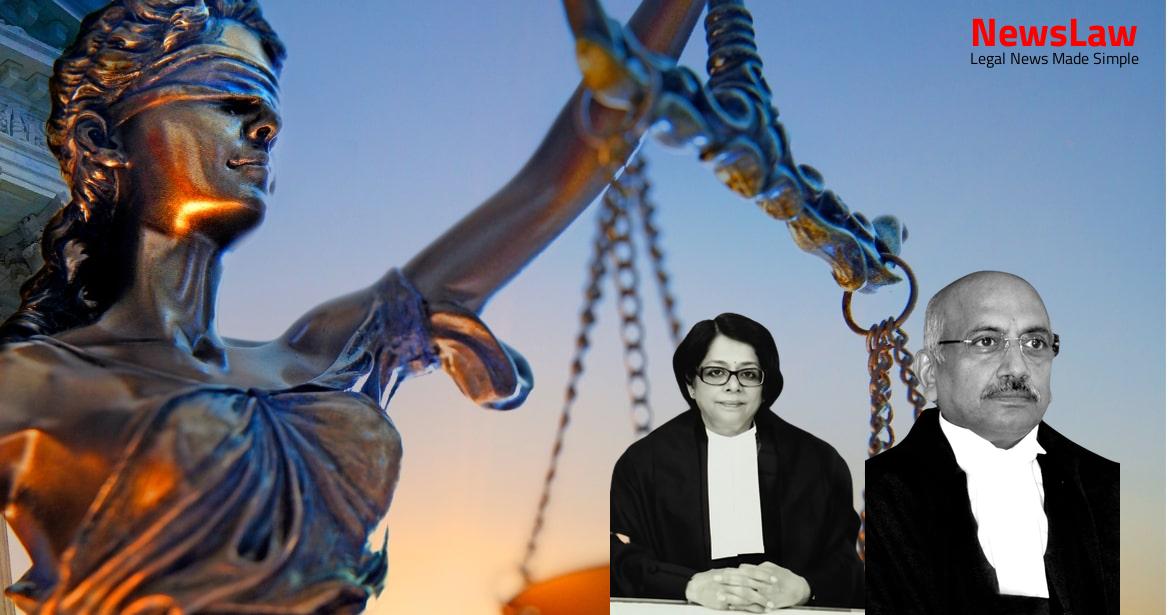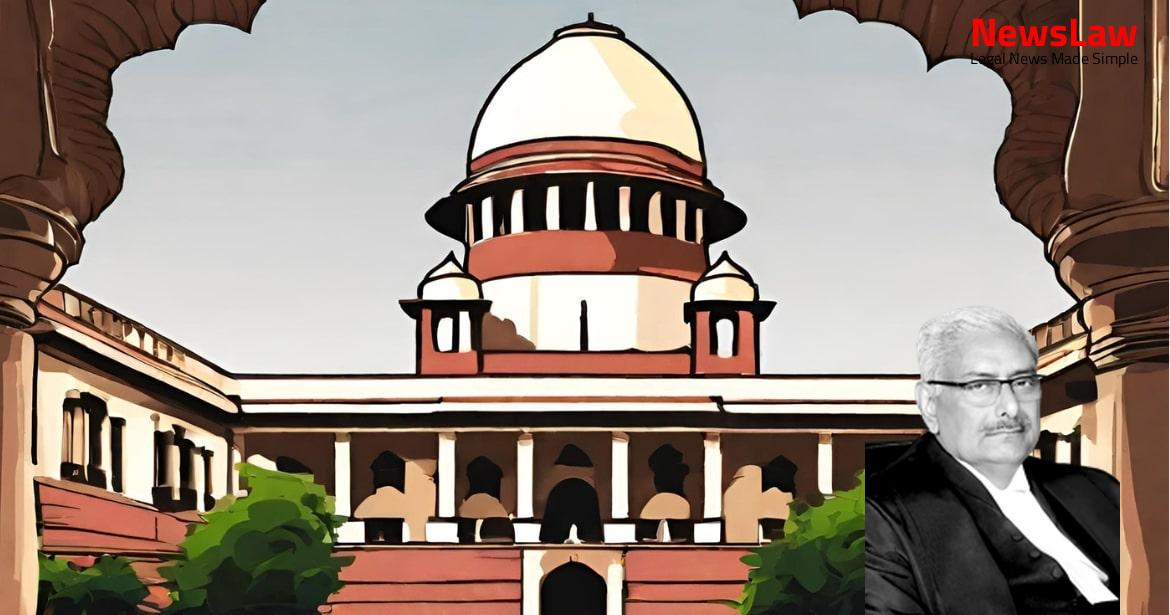Explore the depths of legal intricacies as a court delves into a custody dispute, dissecting the nuances to ensure the welfare of the child remains paramount. Discover how judicial frameworks and international collaborations play a pivotal role in safeguarding children’s rights in complex legal battles. Stay tuned for insights into the legal analysis that shaped the outcome of this significant case.
Facts
- The Family Court directed visitation for Perry to meet the child on specific days and times, including through Skype.
- The High Court granted Perry and his parents access to meet the child regularly, noting the child’s attachment to both maternal and paternal families.
- The Court considered the child’s well-being and development, emphasizing the importance of nurturing from both parents and grandparents.
- Various court orders were issued regarding visitation schedules and custody arrangements.
- Issues regarding the child’s passport and citizenship were addressed during the proceedings.
- The High Court granted permanent custody to Perry Kansagra at the end of the academic session 2017-18.
- Smriti tried to alienate the child from the father by seeking to restrain Perry and his parents from meeting the child without her consent.
- The High Court dismissed the appeal and held that granting custody to the father would be in the best interest of the child.
- Perry was willing to file an undertaking of his mother, who holds an Indian passport, to ensure compliance with the visitation rights granted to Smriti.
- Allegations of Perry being an alcoholic, having an adulterous relationship, and being involved in a criminal case were found to be unsupported or unproven.
- The domicile of the child was considered the determinative factor in the custody case, not the domicile of the Petitioner.
- The High Court directed procedures for visitation rights, including unsupervised visits with overnight stay.
Also Read: Electoral Malpractices in Mayor Election
Issue
- Family Court framed two issues for final determination
- First issue was regarding the maintainability of the Guardianship Petition due to Perry being a foreigner
- Smriti contended that Perry, as a foreigner, could not invoke jurisdiction of relevant Acts
- Family Court held that the objection was raised only during arguments and not in pleadings
- Since the issue was not purely legal but a mixed question of fact and law, it could not be raised at that stage
Also Read: Balancing Power and Transparency: Electoral Bonds Struck Down, Disclosure Mandated
Arguments
- The Counsel for Smriti highlighted the pendency of criminal proceedings against Perry related to the dam burst in the Solai farms.
- The dam burst incident occurred in a farm owned by Perry and his family.
- The emphasis was placed on the fact that Perry is facing criminal charges in connection with the dam burst.
- Respondent placed reliance on UNICEF Report and documents showing dam burst due to natural calamity
- Criminal proceedings against respondent seen as determinative factor for declining guardianship to Perry
- No culpability or hostility from local populace against Perry and his family members
- Grandmother of Perry, aged 101, living alone in Solai Farms
- Perry refuted allegations, attributing dam burst to unprecedented rainfall in May 2018 in Kenya
Also Read: Recall of Resolution Plan Approval: Legal Analysis
Analysis
- The court considered the preferences and aspirations of the child as mandated under Section 17(3) of the Guardians and Wards Act.
- The best interest and welfare of the child were determined based on factors like educational opportunities, cultural adaptation, nationality, and exposure to different cultures.
- The primary jurisdiction was exercised by the court where the child had been ordinarily residing, and the mirror order was passed to reflect the protection ordered in the primary jurisdiction.
- Various aspects regarding the custody of Aditya were analyzed, including his affection towards his parents and paternal family, academic progress, attendance records, and business interests.
- The court dismissed objections regarding messages, excessive drinking, racism, and withheld information, emphasizing the child’s welfare as the dominant consideration.
- The child’s holistic growth, emotional balance, inclinations towards both parents, and well-being were highlighted as pivotal in deciding custody.
- The judgment affirmed the findings that transferring custody to the father, Perry, was in Aditya’s best interest, considering his age, development, future prospects, and family dynamics.
- Perry shall bear the cost of Smriti’s return air-ticket from India once a year and accommodation for seven days.
- Smriti must file an undertaking after the order has become final, committing to comply with the court’s directives.
- The undertaking must ensure strict adherence to the visitation schedule and be signed by a responsible official.
- Smriti is allowed audio and video calls with the child for at least 10 minutes daily at a mutually agreed time.
- Smriti can freely exchange emails, letters, and other correspondences with the child without hindrance from Perry or his family.
- In addition to temporary custody during vacations, Smriti may visit the child in Nairobi, Kenya.
- Electronic records are considered admissible in court proceedings under specific conditions outlined in the law.
- In appointing a guardian for a minor, the Court must consider certain factors.
- The conditions for admissibility of computer output as electronic records are detailed and must be met for evidence.
- A statement can be given in evidence if accompanied by a certificate meeting specific requirements.
- The child cannot be taken out of Nairobi, Kenya by Smriti.
- Mirror orders are used to safeguard children in transit from one jurisdiction to another, often in cases involving transnational marriages and custody disputes.
- The primary jurisdiction should establish mirror orders in other jurisdictions to ensure collaborative judicial function and enforcement if needed.
- The welfare of the child must be the paramount consideration in custody disputes, as per Section 13 of the Hindu Minority and Guardianship Act, 1956.
- Mirror orders have been commonly used in various jurisdictions, especially in cases where the Hague Convention does not apply.
- Judges have emphasized the importance of mutual confidence between parents and judicial frameworks to prevent conflicts in custody cases.
- Education opportunities, environment, financial resources, and future prospects of the child are significant factors considered in determining the best interest of the child.
- The law related to custody of a child emphasizes the rights of the child and what serves their best interest over legal rights of the parties.
- Countries need to respect different concepts of child welfare derived from various cultures and traditions for effective international collaboration in combating child abduction.
- The judiciary often invites parties to seek mirror orders in foreign jurisdictions to protect against child abduction or facilitate parental contact across borders.
- The ultimate goal of conventions and regulations is to provide protective measures for children and ensure cooperation among jurisdictions for the child’s welfare.
Decision
- The Appeal is dismissed with no order as to costs.
- Perry is granted unsupervised visitation with overnight access during weekends when he visits India until he is granted full custody.
- Passports must be deposited before the Registrar of the Court during the visitation period.
- Custody of Aditya Vikram Kansagra is to be handed over by his mother Smriti Kansagra to the father Perry Kansagra after compliance with the specified directions.
- Perry must obtain a mirror order from the court in Nairobi reflecting the directions within 2 weeks.
- A sum of INR 1 Crore must be deposited in the Registry of the Court for ensuring compliance with the directions.
- Costs will cover air fare and expenses for stay in Kenya.
- Smriti is not allowed to take Aditya out of Nairobi, Kenya without Perry’s consent.
- Perry and Smriti must file Undertakings before the Court stating compliance with the directions within one week.
Case Title: SMRITI MADAN KANSAGRA Vs. PERRY KANSAGRA (2020 INSC 613)
Case Number: C.A. No.-003559-003559 / 2020



